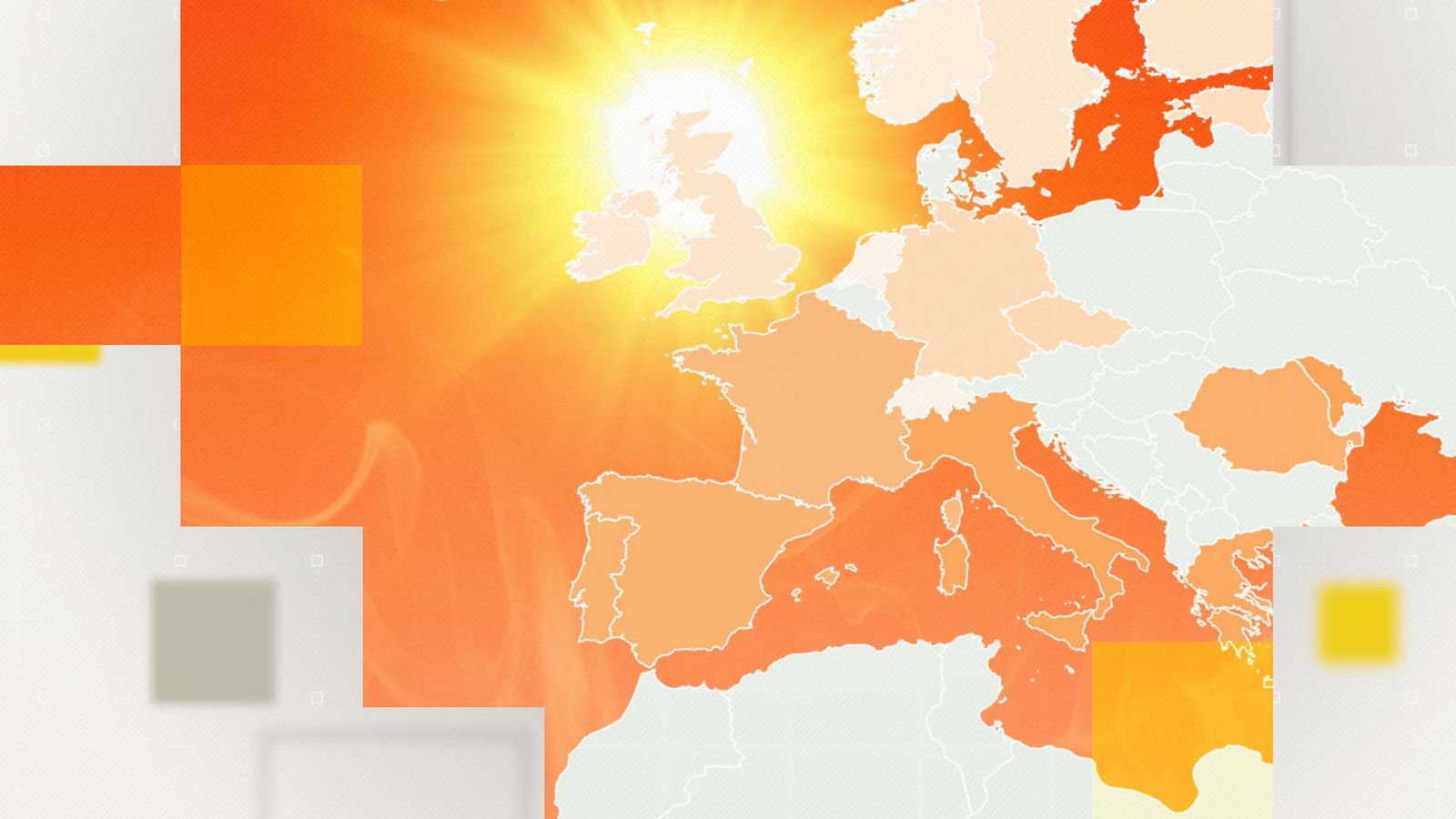Britain’s record temperatures have led to warnings of widespread health problems, with even the fit and healthy being told to keep out of the sun.
But there are many parts of the world where temperatures regularly top 40C (104F). Anyone who has spent time in Australia or the Middle East will know life still continues in the summer months..
It has left some people wondering if the warnings around the UK heatwave are overblown.
But new research lays bare how the UK, like much of northern Europe, is ill-equipped to deal with hot temperatures relative to other parts of the world.
The map shows the minimum mortality temperature (MMT) for different countries. This is the average daily temperature at which fewest people die – a rise in temperature above this point leads to more deaths.
The UK has an MMT of 17.0C – calculated from an average of 10 different regions.
Looking across Europe, there is a clear north to south trend. Hotter countries in the south have a higher minimum mortality temperature – Italy’s is almost 5C above that of the UK’s.
It shows that these countries are better able to deal with hotter weather. When average daily temperatures exceed 17C in the UK more people die, but in Italy this doesn’t happen until temperatures exceed 21.7C.
But these differences in MMT are small compared to those between European countries and places like Iran, where the figure is 28C.
And the MMT in nearby Kuwait is the highest in the world at 31C.
In tropical climes the MMT is also consistently higher – it tops 27C in Vietnam, Thailand, and the Philippines – and is 22.7C across China’s varied climate.
Across the world there is a wide variation in the MMT, but it generally follows a pattern that it is higher in hotter places, suggesting these countries are better equipped to deal with higher temperatures.
The data shows that when it comes to health outcomes, a 40C day in the UK is not the same as a 40C day in Iran. More excess deaths would be expected in London than Tehran at the same high temperature.
This is largely due to the fact that people and societies adapt to warm environments when they become used to them.
This includes adaptations such as constructing homes with good ventilation or air conditioning and the public being consistently aware of the dangers of hot weather.
There is also some evidence that people may become physiologically better at coping with hot environments when acclimatised to them.
The findings suggest that as climate change leads to warmer temperatures, societies will move to adapt.
Yet heatwave events that significantly exceed the average temperature, as is the case in the UK currently, will likely continue to lead to more deaths.
Methodology
Minimum mortality temperature data was collected by the Multi-Country Multi-City (MCC) Collaborative Research Network. Several studies were performed in some countries at different locations. The reported figure is the median figure for these studies per country.
The Data and Forensics team is a multi-skilled unit dedicated to providing transparent journalism from Sky News. We gather, analyse and visualise data to tell data-driven stories. We combine traditional reporting skills with advanced analysis of satellite images, social media and other open source information. Through multimedia storytelling we aim to better explain the world while also showing how our journalism is done.








